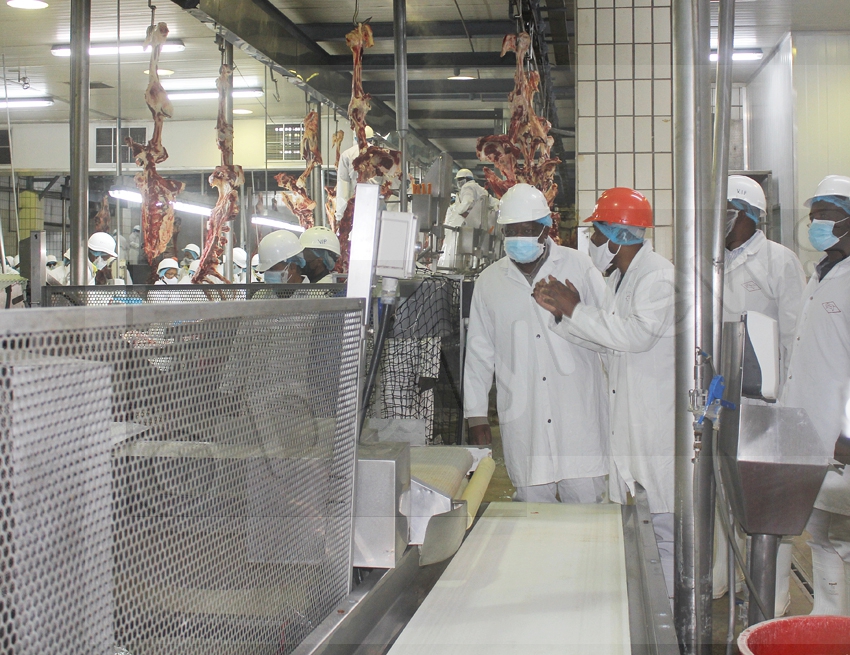Over 200 000 cattle exported to neighbouring countries
20 Dec 2021
Government has taken the decision to authorise the exportation of live cattle and facilitate the export of beef and beef products by private abattoirs as part of efforts to promote an export led economy and continuously grow the beef industry value chain, Assistant Minister of Agricultural Development and Food Security, Ms Beauty Manake has said.
Presenting a statement in Parliament on Friday, Ms Manake said over 200 000 cattle were exported to neighbouring countries.
She noted that South Africa imported 195 000 constituting 97.5 per cent of the total export whilst Namibia received 5 000 cattle which was 3.5 per cent of the total export over the past 14 months.
“South East District was leading the exports with a cumulative number of 80 000 cattle, making it 40 per cent followed by Ghanzi at 54 000 which is 27 per cent , Southern District 23 000 at 11 per cent, Kgalagadi 17 000 which is 9 per cent, Kweneng and North East with 9 000 cattle which is only 5 per cent each and Kgatleng and Central districts with a combined total of just over 4 000 cattle,” she said.
She said the South East District was leading on the exportation of cattle, which was attributed to the fact that it hosted the majority of feedlots that exported live cattle. The minister noted that there were seven feedlots exporting cattle in the district, and that it was also a catchment area for a number of production zones.
The minister noted that Namibia importers were only interested in buying market ready animals as opposed to their South African counterparts who fed their animals before sale, hence the low number of exportations to Namibia.
The opening of borders for live exportation of cattle, she said, had brought about a lot of good outcomes, which have impacted farmers lives positively. She said the dispensation had afforded farmers alternative markets.
She added that the export market had also offered farmers competitive prices for cattle in different categories as well as prompt payments.
She noted that the export market had also created a platform for more cattle auctions where farmers sold their cattle for competitive prices. She said BMC had also increased their buying prices in order to be competitive.
Despite the successes, Ms Manake also noted challenges which included some animals not meeting the set exportation standards and requirements.
She said government had however, established the meat regulation authority office and that it would be in operation by March 2022 to remedy some of the challenges.
Some of the risks associated with the exportation of cattle, the minister said, was the public perception regarding government’s commitment to revamp BMC, which has been an anchor to the local beef industry since 1965.
She emphasised that government remained committed to revitalising BMC as stated in the ruling party’s manifesto and that government would strive to include locals in the beneficiation of the agriculture value chain.
She said the other risk associated with the liberalisation of the beef market was the public perception that government, thorough the exercise, was exporting jobs.
Ms Manake also said the creation of a sustainable leather park industry should be supported by a vibrant beef industry, which was profitable to all stakeholders within the value chain.
She added that there was need to capacitate the beef industry led by both the private sector and government.
The minister also said there was need for public education on the commercialisation of the beef industry and the need for other competitive markets to in order to ensure good market prices and a return on investment for farmers and stakeholders within the industry. ENDS
Source : BOPA
Author : Thato Mosinyi
Location : Parliament
Event : Virtual Parliament
Date : 20 Dec 2021



